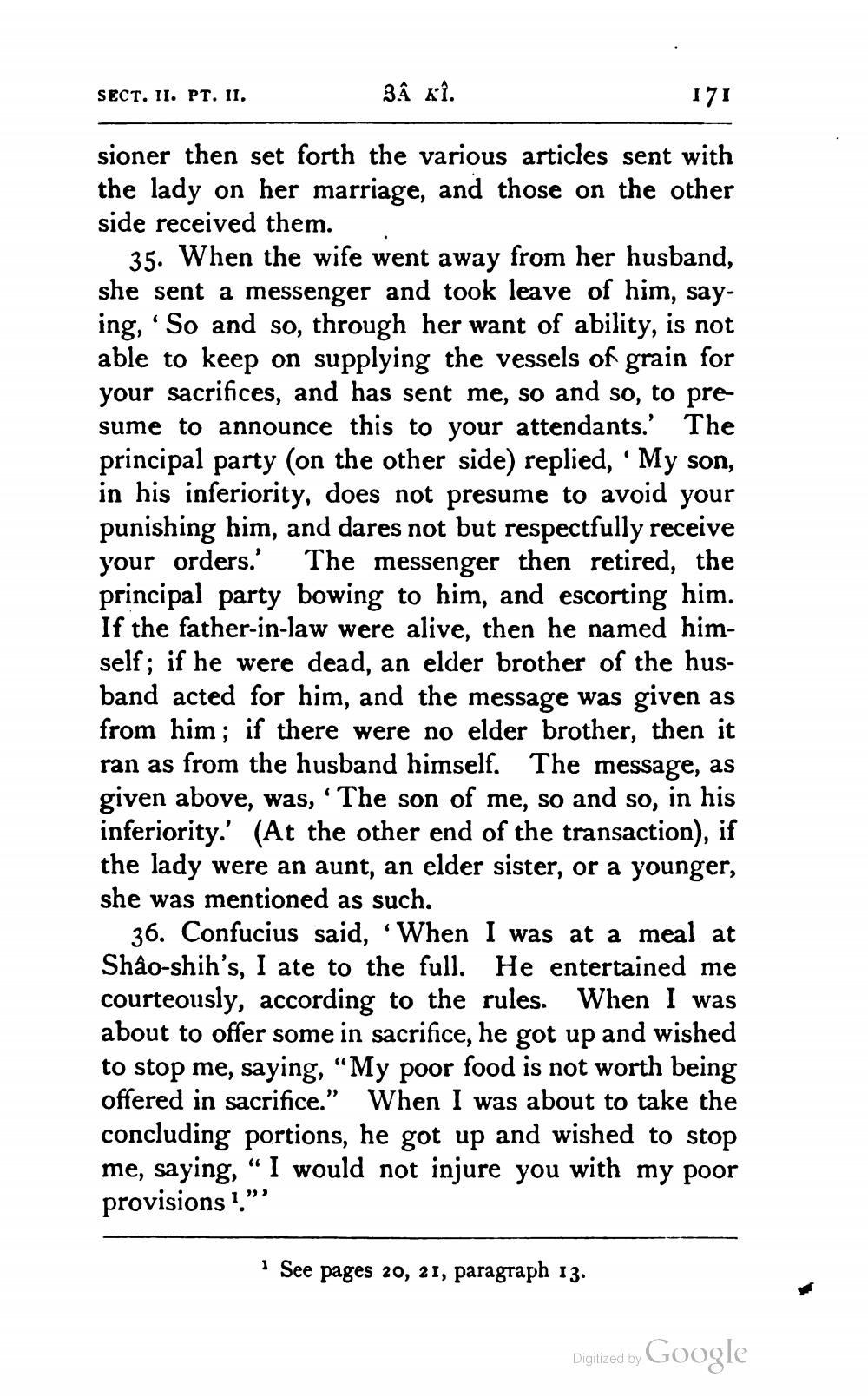________________
3â xi.
171
sioner then set forth the various articles sent with the lady on her marriage, and those on the other side received them.
SECT. II. PT. II.
6
35. When the wife went away from her husband, she sent a messenger and took leave of him, saying, So and so, through her want of ability, is not able to keep on supplying the vessels of grain for your sacrifices, and has sent me, so and so, to presume to announce this to your attendants.' The principal party (on the other side) replied, 'My son, in his inferiority, does not presume to avoid your punishing him, and dares not but respectfully receive
your orders.' The messenger then retired, the
principal party bowing to him, and escorting him. If the father-in-law were alive, then he named himself; if he were dead, an elder brother of the husband acted for him, and the message was given as from him; if there were no elder brother, then it ran as from the husband himself. The message, as given above, was, 'The son of me, so and so, in his inferiority.' (At the other end of the transaction), if the lady were an aunt, an elder sister, or a younger, she was mentioned as such.
36. Confucius said, 'When I was at a meal at Shao-shih's, I ate to the full. He entertained me courteously, according to the rules. When I was about to offer some in sacrifice, he got up and wished to stop me, saying, "My poor food is not worth being offered in sacrifice." When I was about to take the concluding portions, he got up and wished to stop me, saying, "I would not injure you with my poor provisions 1."'
1 See pages 20, 21, paragraph 13.
Digitized by
Google




